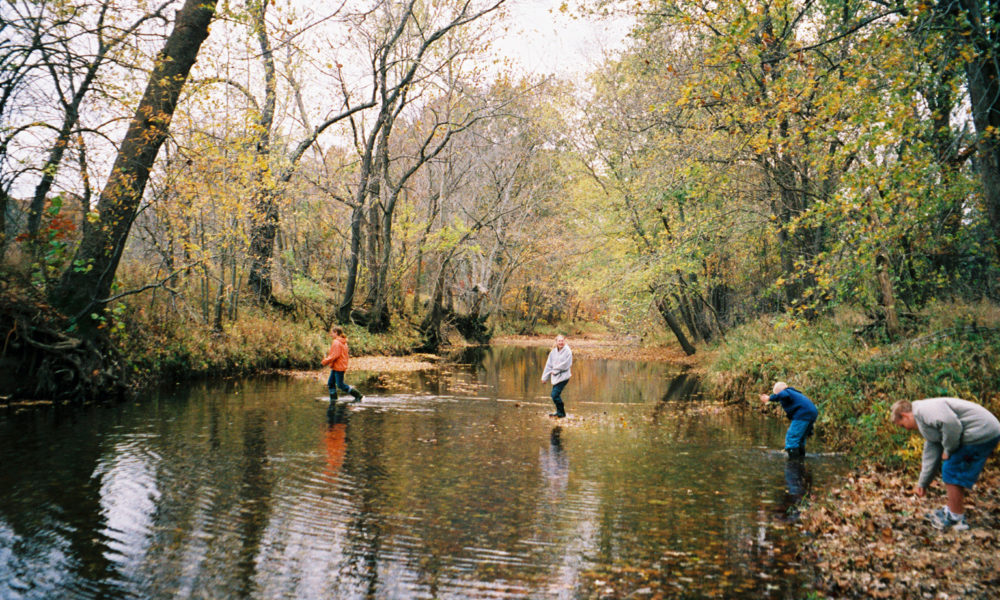 By Jessie Dryden, Rivers Organizer
By Jessie Dryden, Rivers Organizer
The call to wake and rise affects us all differently. On hearing the reveille—a signal to get up—some move slow to the sound, others fast. And it’s not always a bugle horn shocking our ears into awareness and our awareness into action—at times, that call is willed from a guttural place of intuition drawing us closer to some energetic source.
Samuel Clemens heard the river call, hopped aboard a steamboat and became Mark Twain. He followed the flow from north to south and up and down, again and again, capturing the heritage of the river industry at a critical juncture in America’s history.
Mark Twain is the world’s most famous river rat. It just so happens that Mark Twain and I share a hometown (Hannibal, MO), a passion for rivers and wildlife, a heart for people and writing, and a predisposition for mischief. It is not the magic of living in the Limestone Valley between Two Bluffs or the grit of the Mississippi mud that connects us. Nope. There must be something in the flow of H2O; there must be something in the water.
And there is.
My call to the river was out of curiosity and hope. I had chronic health problems as a child that left me often bedridden. I was an easy target, bullied a lot, and hid from people. My favorite hiding place was in the shadows of nature almost always by some source of freshwater. Wading barefoot in creeks, hugging trees, and talking to animals and insects was and still is my favorite pastime. Exploring the forests and tiptoeing through the prairie on sacred land stewarded by my ancestors roots me deeper to this environment called Missouri. But for me, the river did not call aloud. It whispered softly and tenderly drawing me closer to the water, to the Mississippi mud composing my very DNA, calling me home. This was my signal to arise and take action to preserve clean water for a future Missouri. It’s that legacy to carry on.
Rivers organizer is a title I cherish and hold sacred as a steward for clean water. What I learned from years of watching the ebb and flow of floods is that when the river rises in Hannibal, we build a boat, and we rise with it. I hope this blog can be an exploration of connective threads that, like a river, are as intricately winding and intertwining, creating new paths for us to explore together.
The tough-love truth is that we are at a critical juncture in time, with the opportunity to capture the narrative of another shift. And right now, I feel the call louder than thunder—like a sonic boom—to protect and navigate our state through treacherous and uncertain waters.
You can’t drink oil.
You can’t drink manure. You can’t drink coal or nuclear waste and survive for very long after.
Why would we accept nutrient pollution as a standard for clean water, even in small doses?
Perhaps a more acute question is this:
When will we stop sacrificing the environment to capitalize economically?
Quantity over quality. Profit maximization. Opportunity Cost. Terms that sound good in theory but are sometimes destructive in practice, which is why MCE plays such a pivotal role as the environmental counterbalance to the deregulated economy. It’s a real Lorax and Once-ler situation in need of Lady Justice and something to explore as we ebb and flow.
Fifty years ago, the forefathers and foremothers of MCE had the foresight to advocate and advance vigorous environmental standards to divert the negative impacts of human behavior. People like Leo and Kay Drey, Louise and Lewis Green, Barry Commoner, and Alfred Kahn cared back then about the present future of clean water in Missouri. While MCE is purposed to safeguard and expand protections to all of Missouri’s rivers and streams, we cannot do this without you, Missouri. This wake-up call requires us all to transition our behavior to pollute less. In order to pollute less, we must have access to the knowledge, tools, and resources to make those changes and then to connect with others that know how to legislate that change.
So what I know is purely this: when the only power you have to change your environment is economic then your real power is a personal choice. We must make better choices. We must choose to work together. We must be the generation that safeguards Missouri’s water and land, not merely for future Missourians but so that there is a future Missouri.
The sacred power of water in a world where water is polluted leaves me thirsty. I find myself during the first few months at MCE wanting to go deep and know more. What the head and heart of rivers really expose is the power of a single raindrop joining forces with other drops of water and together they forge through good earth and solid rock to connect to the source—a force of energy so powerful that no human invention can stop it. Whether that energy is positive or negative or light or dark is a matter of matter. And that matter is either organic or synthetic depending on the flow of the watershed as those drops of water meet a bigger stream. If we can map out how we pollute our water, we can engineer a way to resolve it. That is the hope I have for raindrops. We must not only be the change we want to see; we must dig deep and dredge to reverse the flow.
We are Missouri.
We are Missouri Rivers Rising.
If I can express to you to the depth and degree of my commitment to clean water as rivers organizer for MCE, it would be summed up with this:
I flow as if life depended on it.
I flow for the future of Missouri.
So, I asked myself, “Self, what would Samuel Clemens do?” He would adventure up and downstream talking to other river folks across the state, trying to make common sense of it all.
Flow with me on my journey and support the stewardship and advocacy efforts of MCE.
And, yo! If you’re not already a member, we encourage you to join in and rise up with us. Mother Nature needs all the help she can get. Let’s forge a greener future together, friends.
#MORiversRising

